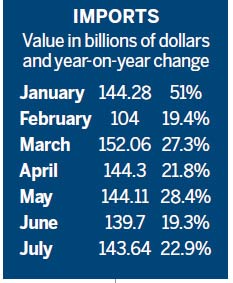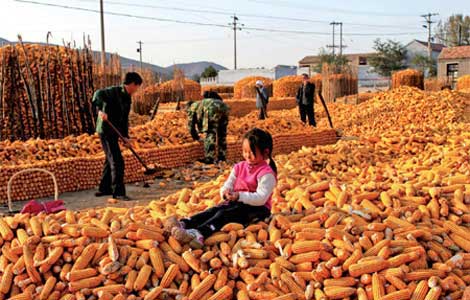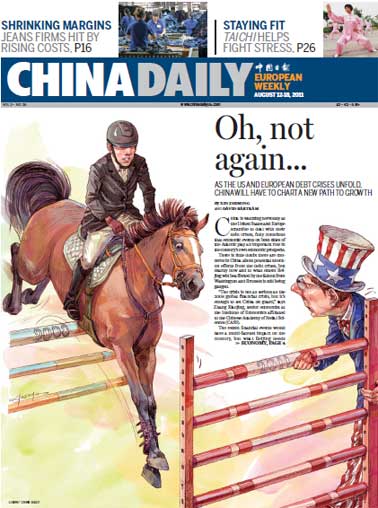Imports: Sliver of a silver lining
Updated: 2011-08-12 11:25
By Zhang Jin (China Daily)
Even as the prolonged debt crisis in the US and Europe brings the prospect of an economic slowdown, Chinese imports may well turn out to be the beacon that guides global economies out of the financial maelstrom.
Not surprisingly it was Chinese imports that proved the savior in 2009, when strong demand for machinery, chemicals, minerals and steel helped developed economies survive the economic crisis.
 |
Unlike 2009, the import basket this time will have a different set of ingredients. Consumption-related goods including food are likely to push growth-related imports like oil, iron ore and equipment to the back seat, with Europe and the US replacing resource-rich nations like Australia as the biggest beneficiaries, experts say.
Such a change is inevitable as current demand is ruled by "strong fundamentals that are insusceptible to economic fluctuations," says Nie Pingxiang, a researcher with the Chinese Academy of International Trade and Economic Cooperation, a think tank affiliated to the Ministry of Commerce.
Nie says China's huge demand for finished products, especially food and branded consumer products, constitute what is called "rigid demand".
"This demand is on the rise and will well offset the decline in raw materials imports," she says.
Based on price-adjusted figures, she says, imports of finished and consumer products accounted for more than one-third of the total imports from January to June this year, compared with 23 percent two years ago.
As a result of this, she says, China's imports will brave the global slowdown, if any, to grow by 20 percent to $1.7 trillion (1.19 trillion euros) this year.
China imported $1.39 trillion of products to become the world's second-largest importer, trailing the US, last year.
In the same period, the nation has also transformed from being a net exporter to a net importer of a variety of consumer goods fueled by growing incomes and changing lifestyle patterns.
"Some of the imports have become daily necessities and China will continue to increase its intake of these products irrespective of whether there is a recession or not," says Fan Ying, a professor of economics at the China Foreign Affairs University in Beijing.
Apart from daily necessities, China also needs to import other goods that it is not so adept in manufacturing, experts say.
These goods include high-end machinery and medical equipment imports from European nations such as Germany.
"I don't think a global slowdown will weaken China's demand for these goods," Fan says. "China needs them to maintain, if not expand, its production scale."
China imported $423 billion of machinery from January to July, a year-on-year growth of 17.5 percent.
But not all experts are optimistic.
Some believe that Chinese imports will not be as impressive as they were in 2009, if a similar financial crisis hits, this time because China is not likely to roll out a massive stimulus package of the size it did in 2008.
"Without a stimulus package like that, fixed-asset investments on items such as infrastructure will surely go down," says Bai Xuefeng, director of the trade department at the China Chamber of Commerce for Import and Export of Machinery and Electronic Products. "In that case, how can we expect a surge in imports of foreign equipment and materials?"
China launched a 4-trillion-yuan stimulus package to shore up its economy in late 2008.
E-paper

My Chinese Valentine
Local businesses are cashing in on a traditional love story involving a cow herder and a goddess
Outdoor success
Lifting the veil
Allure of mystery
Specials

Star journalist leaves legacy
Li Xing, China Daily's assistant editor-in-chief and veteran columnist, died of a cerebral hemorrhage on Aug 7 in Washington DC, US.

Sowing the seeds of doubt
The presence in China of multinationals such as Monsanto and Pioneer is sparking controversy

Lifting the veil
Beijing's Palace Museum, also known as the Forbidden City, is steeped in history, dreams and tears, which are perfectly reflected in design.
